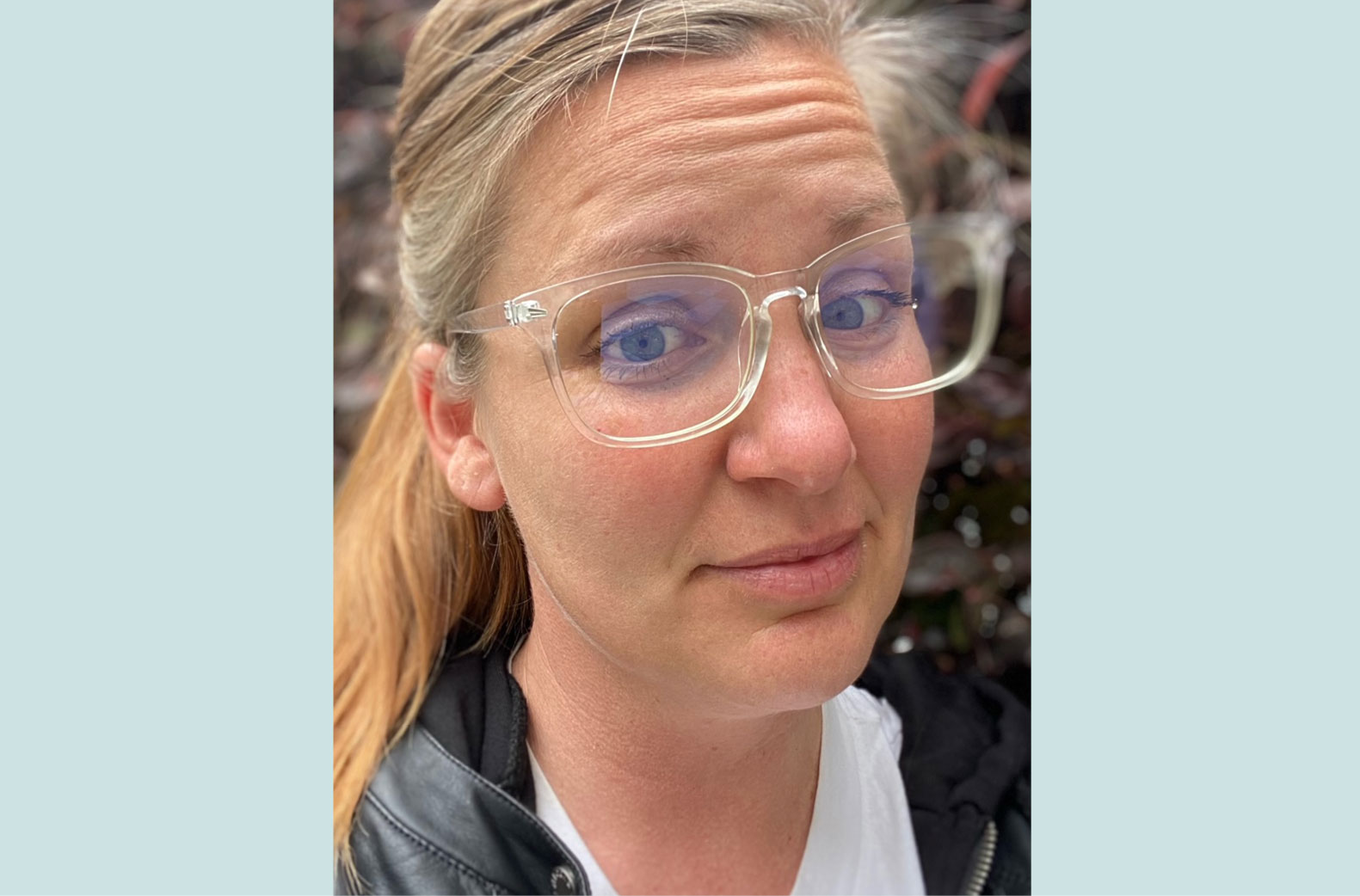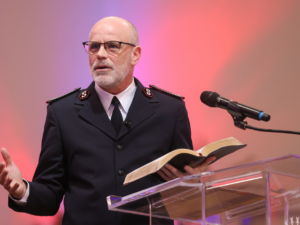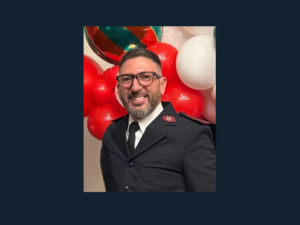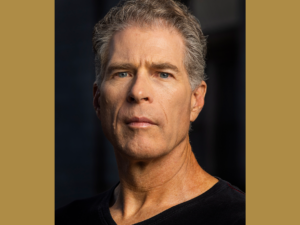Things are messy, right? That’s life?
So where is the joy?
How do you find it?
Captain Arwyn Rodriguera can show you the way.
Arwyn Rodriguera is the Corps Officer and Executive Director of The Salvation Army Ray and Joan Kroc Corps Community Center San Francisco and Railton Place, a 113-unit affordable housing development in the city’s Tenderloin neighborhood.
And she’s also the adoptive mother to twin girls.
She knows about the trust established through attachment to a primary caregiver. And that that attachment is the healthy community that can restore what has been broken.
She learned more about attachment theory on her journey to becoming a certified foster parent and realized in those classes that that’s exactly how our attachment works to God.
That safety, that joy—alongside community, trust, restoration and celebration—are, as she says, the witness a weary and broken world needs.
Show highlights include:
- How Captain Arwyn Rodriguera defines joy.
- How she became a Salvation Army officer.
- How she found joy in fostering to adopt and what this process involved.
- She shares a core memory from an instructor who assisted her and her husband during the adoption process.
- How she learned about the role of a primary care provider and what this means to her.
- Why it is critical for a child to have a healthy attachment to a care provider.
- How becoming a foster parent changed her understanding of joy.
- What she has learned and what others can learn, from Psalm 43 and the experience of David.
- The word the angels use for joy at the proclamation of the birth of Christ.
- Why the angels burst in celebration as we see in Luke 2.
- What she meant by: “Joy and its friends—community, trust, restoration and celebration—are the witness a weary and broken world needs.”
- What her role at the Kroc Center and her experience as a parent have shown her.
- Encouragement to those listening to find and share joy.
Listen and subscribe to the Do Gooders Podcast now. Below is a transcript of the episode, edited for readability. For more information on the people and ideas in the episode, see the links at the bottom of this post.
* * *
Christin Thieme: Well, Captain, welcome to the Do Gooders podcast. Thank you so much for joining me today.
Arwyn Rodriguera: I’m happy to be here. This is fun.
Christin Thieme: Absolutely. We are going to talk about joy today, which I’m excited to get into with you, but first, I know you have an interesting story coming to The Salvation Army. So can you give us a little primer on how it is that you became an officer, or a pastor, in The Salvation Army?
Arwyn Rodriguera: So my best friend and I applied together through an ad on Craigslist from the mainland to work at Kroc Hawaii in the development stages. And we applied as a couple because it looked like they were looking for a couple and we’re like, “We’re two best friends, single women ready to hang out in ministry.” And for some reason they hired us. My best friend, Elizabeth Gross, went on to be an officer and she’s about to be the DYS in the Northwest Division and we’re very excited about that. But after my first year, I lacked the maturity and they graciously transitioned me to another Army position, which just radically changed my life. And so I got to be young in the Army and be shown grace. Pretty cool stuff.
Christin Thieme: Yeah, absolutely. And kind of amazing. You answered a Craigslist ad and are now an officer in The Salvation Army. How wild is that?
Arwyn Rodriguera: Yep, I left California for a job in Hawaii where I met my husband, who is, his name is Craig and he’s a first generation American, so I just found him on Craigslist.
Christin Thieme: Yeah, thank you. Does Craigslist still exist? I’m actually not sure. Thank you, Craigslist.
Arwyn Rodriguera: It’s like I got a job on Craigslist is akin to when I used to go to Blockbuster. Right?
Christin Thieme: Totally. I miss those days.
Arwyn Rodriguera: Those days, those days.
Christin Thieme: Which brings us right into joy.
Arwyn Rodriguera: Good segue. Good segue.
Christin Thieme: There we go. So how do you define joy?
Arwyn Rodriguera: So I define joy when I’m looking at biblical joy, I approach things from a counseling and social work perspective. And so when I look at Scripture and how God interacts with his image in humans, what I see is a lasting, sustainable, emotional state that results from trusting God. When you have that solid trust in the Lord and you’re unshakeable because you know he has it. So it’s not about outcome or circumstance, it’s about God’s presence in this moment.
Christin Thieme: I like that definition. That’s a good one. And you kindly just wrote a Scripture study for Caring all about joy. It starts with maybe what you might not expect when you’re opening up a study about joy, but that’s your experience with a calling to foster-adopt. Can you share a little bit about what led you to that decision? What led you into that experience and what did it involve for you?
Arwyn Rodriguera: So my husband and I, I never really wanted kids except I wanted to adopt twins. I just had this feeling like there are twins out there. And then I met Craig and if you ever get to meet Craig, Craig is one of those humans that the world should have many more of them. I am not one of those ones, one Arwyn Rodriguera is enough, but one Craig is just not enough for this world. And he made me want to have kids. And we ended up having three miscarriages and God really met us in that place. So, we journeyed through this mix of grief in the presence of God, so profoundly important for our marriage and for our understanding of God. And we felt led to adopt. And the avenue we were presented with was foster adoption. And we ended up in these classes that radically changed our lives and how we view the image of God and our role in leading humans and interacting with humans. And what does that mean to build trust in terms of kingdom and affirming the image of God on people’s lives.
Christin Thieme: That’s incredible. And you write in the study about that process of becoming certified foster parents and especially about one particular instructor that you encountered in that process. Can you share more about her? And I love you bringing Disney with your “core memory,” as you call it, of meeting with her.
Arwyn Rodriguera: So her name is Senta and she’s absolutely incredible. She came into the room and it was kind of this dramatic moment and she just stands in front of the class and you’re in a class with people that are in the reunification process or interested in adopting. My husband and I just are really in tune. And she gets up there and her first line is, “Brokenness happens in community.” And we’re like, this is going to be rough. We have to take like-
Christin Thieme: Oh boy.
Arwyn Rodriguera: …like 30 more hours of this. And then after this pregnant pause, she goes, “And healing does also.” And she dived into something called attachment theory where you can have an attachment style. And so there’s four different types of attachment styles. There’s avoidant, disorganized, anxious, but our goal as a primary care provider is to provide a secure attachment. And in a secure attachment there’s trust. And when you’re in a trusting relationship as a primary caregiver, as a parent to a child, you can instill courage and a sense of self. And people with a secure attachment tend to have a high level of being able to understand vulnerability. They have healthy intimacy with other people because they have trust in their care provider that when stress happens, there’s going to be consistent safety and we can give that consistent safety to someone.
And that consistent safety looks like celebration. It looks like emotional regulation. It looks like teaching right and wrong in healthy regulated ways. In my Christian worldview as a follower of Jesus, it’s what God models to us about a secure attachment to him. I have consistent safety, I have restoration, I have community. God is trustworthy. So no matter the circumstance, I’m not alone. And then I am secure in him because he will celebrate with me, he will grieve with me, he will be the sustainable presence with me. And because he is faithful, I can trust that he’s trustworthy. And so she’s taking these ideas of attachment theory and I’m sitting there going, “This is how God works.” It’s this master analogy of stewarding and shepherding the image of God and the impact that has on ministry and homes and that security and how when you have that, it manifests joy.
Christin Thieme: Yeah, it’s amazing when you kind of do that side-by-side comparison and see the direct correlation with our relationship with Jesus, how you break it down. How did that whole experience change your own relationship with God?
Arwyn Rodriguera: I think, I love the concept of joy because in Scripture you have a direct correlation, whether we like it or not, whether it’s comfortable or not, with grief and joy. So we came into that place just really in a processing of grief. You see in Nehemiah 8:10, the people of God are anguished when they’re brought back from exile, the generations that are coming back and they hear the Word of the Lord and they’re like, “Wow, we’ve been so disobedient and our people have been so disobedient. If we only knew.” And Nehemiah gets up there in this cool flex and he goes, “Don’t be grieved. The joy of the Lord’s going to be our strength,” at that point of salvation. So the people of Israel at that point, the need was to know that they could move forward. And so there was joy there.
When you look at David in Psalm 51 where it’s like he’s in anguish over his sin, like, “Restore to me the joy of my salvation.” God was there and he met that, that point of grief. Sin causes that grief, life happens, all these things. And so in that grief, God found us. And in that classroom, after one of the other lessons, we were actually sitting there and the teacher comes in and they’re like, “Yeah, we just picked up these twin girls last night.” And Craig and I were looking at each other going, “Oh, we would take them in a heartbeat.” And six months later we got the call and it was those twin girls, that restoration piece. God found me in my grief and I’m going to find his presence and work through it. And sometimes it’s a celebration and sometimes, just knowing I’m not alone.
Christin Thieme: What have you experienced now as a mom to twin girls and how has that changed your understanding of joy?
Arwyn Rodriguera: Okay, so one of them, Lex, we call her Lex-asaurus, this girl knows no defeat.
Christin Thieme: That’s amazing.
Arwyn Rodriguera: Knows no defeat, like nothing defeats this kid. And our kids are drug exposed, primarily heroin and methadone. So they’re high toned. So we met them at five and a half months. And unlike when you carry a child, attachment works differently when you’re adopting. And so meeting them was kind of like you’re going to meet at a house to pick out a puppy. Are these twins going to like me? Are they going to like my smell?
Christin Thieme: Yeah.
Arwyn Rodriguera: So we were doing a home visit and Lex was on her stomach. We were trying to do tummy time and her body was so stiff, high tone from the drug exposure, and she let off this warrior cry at five and a half months. And they’re like, “We want to touch her to turn her body.” And she goes ahhhhhhh and she’s like, it was her way of saying, “Don’t touch me, I’m going to work through this.” And I was like, “Oh.” And at that moment I knew that’s my girl. And God was like, “That’s the warrior I’m going to bring into your home. Can you steward this? The one that knows no defeat.” So three minutes later she was able to flip at five and a half months, flip her stiff body over and then you hear this …
Christin Thieme: I did it.
Arwyn Rodriguera: I did it, right. And it’s just those moments. Yesterday I was just hanging out with them and they were waiting for Craig to come home.
Christin Thieme: How old are they now?
Arwyn Rodriguera: They’re four.
Christin Thieme: Now four.
Arwyn Rodriguera: They’re four. And their speech is developing. And my little one, Katie, she points to her fingers and she goes, “1, 2, 3, 4—I want the four of us home.” And I’m like, “Oh, we’re the four of us, Lexa, Katie, Mama, Dada.” And it’s like that connection that the present matters. And when we’re all together, even if nothing’s going on, that safety and security matters to her. And I’m like, “Ooh. That’s big for a four year old.”
Christin Thieme: Yeah, no kidding. Oh my goodness. So you told us a little bit about David and Nehemiah. You also point in the study to the word that the angels use for joy at the proclamation of the birth of Christ. What does that word mean? Can you tell us a little bit more about that celebration moment that we are all so familiar with in the Christmas story?
Arwyn Rodriguera: Chara—it’s to rejoice, it’s exuberance. It’s more of our traditional understanding of joy. And so it’s eloquent, it’s so God, right? That all of history led up to the point of the incarnation, the master plan for restoration, so the right relationship between God and humans would be herald in through God becoming a broken baby and having to experience his own attachment in human form. His own image which he created and the joy, the joy and the heavens as they announced to the shepherds like “He’s here, the plan’s here, what you’ve been waiting for is here and it’s come to fruition.” There’s excitement and celebration. We’ve been waiting for this and the time has come and God is faithful and he is trustworthy and this is the plan and it’s being enacted. And not only is it the plan, it’s a good plan and you get to be a part of it.
Christin Thieme: So that’s just a few of the examples that we see in Scripture of joy. Would you say God wants us to experience joy?
Arwyn Rodriguera: Absolutely. Absolutely. He wants to gift us with his presence at every moment. And part of holiness part of our journey as a believer is learning to trust in those moments, learning to allow Jesus into those spaces and allowing that vulnerability where we can learn in our own walk, how to sense the presence of God, whether that’s to check us in our sin, whether that’s to celebrate with us, whether that’s to be with us when we grieve, when we experience the full scope of humanity, God wants to be a part of it and to have that security, which that unshakeable that comes with joy.
I think of Daniel 3, and Shadrach, Meshach, and Abednego when they’re about to be thrown into the furnace for choosing God and their steadiness. And it’s almost like this, not the passage you would pick for joy, but they knew that God was trustworthy. And so they say, “Even if we burn up, we’re going to do this because it’s the right thing.” That’s steadiness. He wants us to have that steadiness and that assurance that everything is under his control. And even when it’s not okay, it doesn’t question his goodness and how he feels about us.
Christin Thieme: That’s hard to do though. What’s your encouragement to people who might be saying, that sounds great, but that’s hard.
Arwyn Rodriguera: Oh goodness. Jesus loves mess. And I think we feel like we have to hide our mess from other people. Ergo we’re really good Christians at hiding it from each other because why be vulnerable with each other? Because then that makes me vulnerable. And I think because it’s hard to enact in community. And that’s why I think community is such an essential part of joy—it impacts our ability to be vulnerable before God. It’s like we can’t allow that. So it’s that discipline of “I feel chaotic” or “I need encouragement,” or “I want someone to celebrate with me,” and pausing and going, “Okay, God, this is hard and it’s messy and I’m going to invite you into this space and I may not feel you right now, but I’m going to do this because this is what I want and I want you. And so I’m going to trust that you’re going to show up to this.”
Christin Thieme: Yeah. There’s a line in your study that I really love. You write, “Joy and its friends, community, trust, restoration and celebration are the witness a weary and broken world needs.” Can you share more about what you meant by that line?
Arwyn Rodriguera: I think the world knows a lot about what they think Christians believe. I think there’s been a lot said, and I think there’s been a lot written, my ministry context is San Francisco in the Tenderloin, and it always feels like there’s a barrier based on what people think we believe. What they need to know is who we believe. And a lot of times, just like Francis of Assisi, when necessary use words, it’s I’m going to be here and I’m going to model these things. I’m going to model what healthy community looks like. I’m going to model what trustworthy looks like. I’m going to model what celebration looks like. And by the power of the Holy Spirit in me, I’m going to offer you restoration.
People need to see more of who we worship, not what we think about who we worship. That’s where the powerful witness is. They’re attracted to joy. People are pursuing happiness, and we can get into a dialogue on that. But what they really want is security, steadiness. That’s a gift God gives when you’re in a healthy relationship, and they need to know that that’s out there and that’s okay and that’s available to them.
Christin Thieme: So from your experience as a parent and in your role there at the Kroc Center, what have you seen of this in reality, this witness the world needs? What does it look like, practically speaking?
Arwyn Rodriguera: It looks, practically speaking, like being vulnerable as the leader at Turk Street, which is our housing unit Railton Place in the SF Kroc Center, a lot of times it’s being the first one to say I’m sorry, and then as a leader, when you invite vulnerability by being vulnerable, people tend to let their guards down and you’re able to establish trust and rapport, whether that’s in a counseling situation, working with a kiddo in an afterschool program, staff member, congregation member. When we invite people into a space where we can build trust, it’s the breeding ground for joy.
Christin Thieme: So finally, what is your encouragement to somebody who might be listening and wants to experience joy or on the flip side, they really want to share this joy that they know.
Arwyn Rodriguera: I think things are just messy, right? So it’s all about leaning in. We see David in, I want to say Psalm 43, I just went blank. Psalm 43 where he’s crying out wanting to be avenged, wanting justice, and he leans into God and there’s an atmospheric shift and he actually names God—God, my exceeding joy. Lean into Jesus, physically, get on your knees, surrender your stubbornness. Go to those places and go, “I am leaning in and I want to be with you. Even though I’m messy, grumpy, dissatisfied, my expectations are met. In crisis, in joy. Happy, but I want more.” Whatever it is, whatever state we’re in, we got to show up and we got to lean in. There’s a leaning in that’s huge if we want to experience that in our life.
But then also in our ministry, we need to model it. A lot of times we diminish joy through talking too much, saying too much, not modeling, not being in the presence of God, running ahead. There’s a steadiness and assuredness of modeling what it is to go, “I’m going to pursue God in this moment, even though I am completely justified in reacting.”
Christin Thieme: Right.
Arwyn Rodriguera: So surrendering, we may have complete justice to pursue something, but I’m going to pause and honor what’s before me and choose this space to invite the presence of God.
Christin Thieme: I love it. Well, thank you so much for sharing. Thank you for the study that you’ve left us with. I would invite you if you’re listening to head over to caringmagazine.org/scripture, that’ll get you into our Scripture study library where you can find Captain Arwyn Rodriguera’s study on joy. So thank you so much. Thanks for being here and for the work that you do.
Arwyn Rodriguera: Thank you.
Additional resources:
- Get inside the Caring Magazine Scripture Study Collection and find a suite of free, downloadable Bible studies to guide you through topics from New Beginnings Through Forgiveness, to Understanding our Imago Dei or Life Hacks From David.
- For more on joy, read “From Pandemic to Renewal: Practices for a World Shaken by Crisis” by Chris Rice.
- Start your day with goodness. Get on the list for Good Words from the Good Word and get a boost of inspiration in 1 minute a day with a daily affirmation from Scripture sent straight to your inbox. A pep-talk for the day. A boost of inspiration and comfort. A bit of encouragement when you need it. Get on the list and start receiving what you need today.
Listen and subscribe to the Do Gooders Podcast now.












